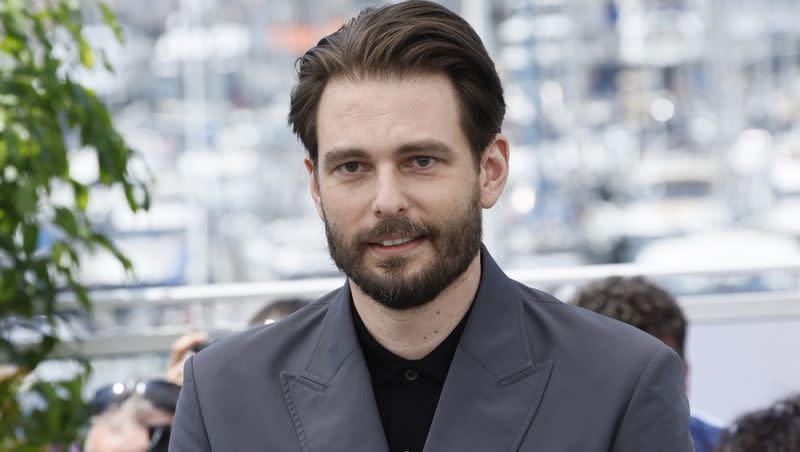Opinion: What’s Sam Levinson’s deal?

- Oops!Something went wrong.Please try again later.
- Oops!Something went wrong.Please try again later.
When you’re watching a Sam Levinson show, you can “expect scantily clad women and voyeuristic sex scenes.” That’s how Savannah Walsh put it for Vanity Fair.
Levinson is known for projects like “The Idol” and “Euphoria.” The former was “critically mauled,” as Cheyenne Roundtree put it in Rolling Stone magazine. Critics pointed out the series had “gratuitous nudity” and was “toe-curlingly naff and sexist,” per BBC.
While the news broke that “The Idol” won’t be getting a second season, the first season was objectionable and graphic enough to wonder if we really needed it in the first place.
It’s not unusual for a Levinson project to have excessive nudity and sex. Hardly 20 minutes into the first episode of “Euphoria,” there’s a scene with full-frontal nudity. While modern television is rife with sex and nudity, Levinson’s shows have been described as “torture porn” by Rolling Stone magazine.
I dipped my toe into Levinson’s content to see if the criticism was accurate — and what I found was appalling and explicit. And now after seeing it, I want to ask: What’s Sam Levinson’s deal?
Related
Writers like Claudia Picado have observed this pattern, too. She wrote in a Collider article, “Looking at the first two seasons of ‘Euphoria’ and ‘The Idol’s pilot episode, it’s hard not to notice a pattern in Levinson’s exploitative depictions of young women under the guise of critiquing society, while at the same time snubbing his nose at those who critique him.”
“Euphoria” actress Sydney Sweeney said in an interview with The Independent that she wanted to reduce the number of topless scenes her character Cassie had, and Levinson agreed. Fellow actress Minka Kelly said to Vanity Fair that she felt uncomfortable with one of the scenes they were filming and Levinson agreed to change it.
Another actress on the show, Alexa Demie, told Vogue, “The nudity was — it was tough for me because I’m, you know, I’m not really ... I’m just not comfortable like that publicly.”
While actresses, particularly Sweeney, have been vocal in defending Levinson, it’s worth interrogating why Levinson feels the need to include so much sex and nudity in his projects in the first place.
And it’s also worth considering how Levinson has to intentionally imagine these scenarios to include them in television and film.
Levinson said he makes his shows the way he does because he thinks there’s a big gap between generations now due to the internet. While he said content on the internet was generally too explicit for film and television, he told IndieWire, “That’s what kind of excited me about HBO. They might actually let me get away with this. They might let me portray it in a way that feels honest.”
Even if he may be portraying a small part of reality accurately, the issue with Levinson’s portrayal of sex and nudity in television isn’t about accuracy. It’s about the position it puts actresses and actors in, as well as whether or not it’s beneficial for the audience.
Isn’t it an issue that actresses on set are requesting fewer suggestive scenes? Especially when one considers it’s in a show with scenes that critics like The Guardian’s Rebecca Nicholson have called “borderline unwatchable”?
If the first season was scandalous, the second season was unthinkable. “Euphoria is unrelentingly explicit this time around, as if it took one look at its former self and thought: no, not shocking enough, try this,” Nicholson wrote.
In a post Me Too era, we ought to be cognizant about how including gratuitous nudity and sex scenes for women can quickly go south. Since women are more likely to be sexualized than men in television, these scenes can quickly contribute to the ongoing objectification of women.
Related
“Game of Thrones” actress Emilia Clarke said on the Armchair Expert podcast that she felt pressured on set. “I’ve had fights on set before where I’m like, ‘No, the sheet stays up,’ and they’re like, ‘No, you don’t wanna disappoint your “Game of Thrones” fans.’”
When there are a bevy of other ways to imply intimacy, why does Levinson choose to create situations where actresses are telling him they don’t want to do the volume of suggestive scenes he chose to include?
The other side of this issue is the audience — is the audience better or worse for having these scenes included?
One of the typical arguments for the inclusion of sex and nudity in television and film is that it portrays reality. So, the case for inclusion becomes something like this — the audience is being exposed to something they have some experience with.
While that may be true, it misses the crucial point in the case against sex and nudity in film: What happens to us, the audience, when we are exposed to graphic content?
Related
Our ideas about intimacy can become warped by watching these scenes. That can have dire consequences for vulnerable young people. The door to objectifying others is opened — that also has dire consequences. And those consequences are real.
Levinson doesn’t seem open to acknowledging any error on his part. The scene in “The Idol” where the intimacy coordinator is locked in a bathroom felt like a direct rebuke to his critics who have expressed concern over the nudity in his shows.
Even if he might not want to see how many real and devastating issues are created by graphic sex and nudity in television, it’s time for us to see them.

